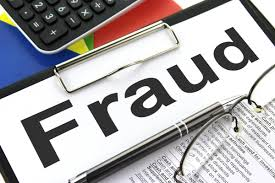Durham County Council is joining forces with partners across the region to warn people of the harm caused by ‘tenancy fraud.’ The council has teamed up with other local authorities and housing providers for Regional Tenancy Fraud Awareness Week (RTFAW,) which aims to let people know about social housing fraud and the impact it has on public funds and families in need of homes.
The forum members will be providing information to the public and staff via social media, websites, posters and presentations, on the different kinds of tenancy fraud.
Examples of tenancy fraud include:
• Unlawful subletting – where a tenant lets out their council or housing association home without the knowledge or permission of their landlord;
• Abandonment – where a tenant leaves their property, has no intention to return and does not inform the landlord. This can cause problems with anti-social behaviour, vandalism and deterioration of the property and also stops it being used to house someone in need of accommodation;
• Obtaining housing by deception – where a person gets a council or housing association home by giving false information;
• Right To Buy/Right to Acquire – where a tenant has applied for or completed the purchase of a property under the Right to Buy or Right to Acquire schemes when they are not entitled or misrepresented their circumstances to gain a discount;
• Wrongly claimed succession – where a tenant dies or moves out and someone, who is not entitled to, tries to take over or succeed the tenancy;
• Unlawful assignment – where a resident stops using their tenancy as their main or principal home, allowing another person to live there without permission;
• Key selling – where the tenant passes on their keys in return for a one-off payment.
In 2013, the National Fraud Authority estimated that the cost of tenancy fraud to councils was £900 million per year. When combined with tenancy fraud experienced by housing associations this gave a total loss of £1.8 billion in England.
Figures from the European Institute for Combatting Corruption and Fraud from last year show local authorities carried out 2,700 investigations into social housing fraud, saving £50.2m. The institute’s research also put the value of Right to Buy fraud at just over £46m.
Paul Bradley, the council’s chief internal auditor and corporate fraud manager, said: “The figures from the National Fraud Authority show how much tenancy fraud hits taxpayer funded councils while it can also stop families in genuine need of homes from getting them.
“This is why we are working with partners across the North East to raise awareness of what tenancy fraud is and the harm it causes, in order to encourage people to report it should they become aware of it.”
To report tenancy or any other kind of fraud phone 03000 266745, email: corporatefraudteam@durham.gov.uk, go online at www.durham.gov.uk and search ‘fraud’ or call in to any council building.
Information about tenancy fraud will be available on social media during RTFAW and can be found by searching #NEHousingFraud.
Also taking part in RTFAW are Gateshead, Newcastle, Northumberland and North Tyneside councils, County Durham Housing Group, Livin Housing, Gentoo Group, Karbon Homes, The Guinness Partnership and Your Homes Newcastle.
As sent to the Editor of the Newton News. If you have a story that we may be interested in, please send to syd@newtonnews.co.uk










